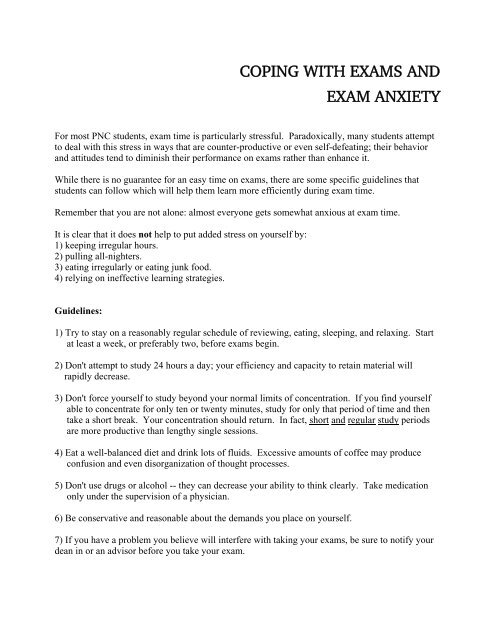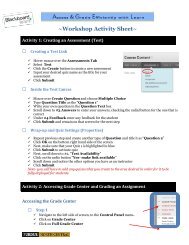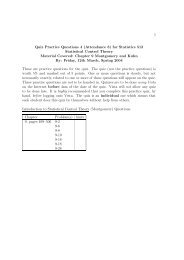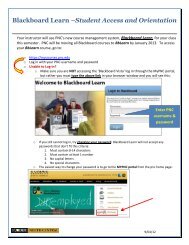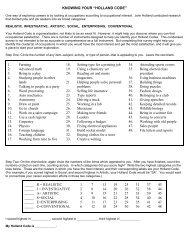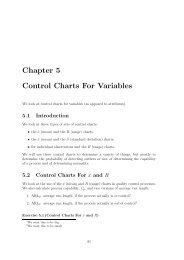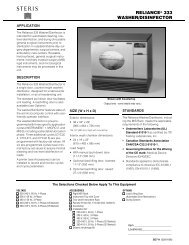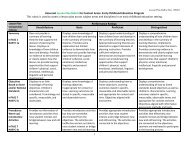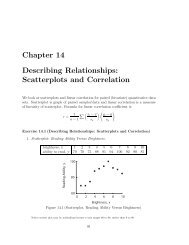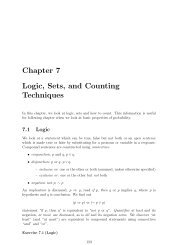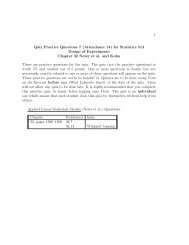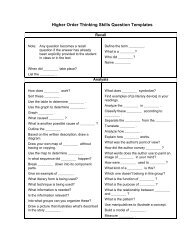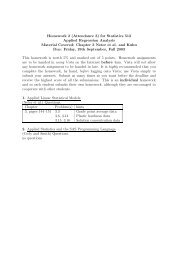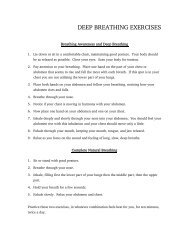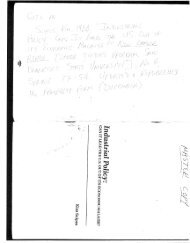exam anxiety worksheet
exam anxiety worksheet
exam anxiety worksheet
Create successful ePaper yourself
Turn your PDF publications into a flip-book with our unique Google optimized e-Paper software.
COPING WITH EXAMS AND<br />
EXAM ANXIETY<br />
For most PNC students, <strong>exam</strong> time is particularly stressful. Paradoxically, many students attempt<br />
to deal with this stress in ways that are counter-productive or even self-defeating; their behavior<br />
and attitudes tend to diminish their performance on <strong>exam</strong>s rather than enhance it.<br />
While there is no guarantee for an easy time on <strong>exam</strong>s, there are some specific guidelines that<br />
students can follow which will help them learn more efficiently during <strong>exam</strong> time.<br />
Remember that you are not alone: almost everyone gets somewhat anxious at <strong>exam</strong> time.<br />
It is clear that it does not help to put added stress on yourself by:<br />
1) keeping irregular hours.<br />
2) pulling all-nighters.<br />
3) eating irregularly or eating junk food.<br />
4) relying on ineffective learning strategies.<br />
Guidelines:<br />
1) Try to stay on a reasonably regular schedule of reviewing, eating, sleeping, and relaxing. Start<br />
at least a week, or preferably two, before <strong>exam</strong>s begin.<br />
2) Don't attempt to study 24 hours a day; your efficiency and capacity to retain material will<br />
rapidly decrease.<br />
3) Don't force yourself to study beyond your normal limits of concentration. If you find yourself<br />
able to concentrate for only ten or twenty minutes, study for only that period of time and then<br />
take a short break. Your concentration should return. In fact, short and regular study periods<br />
are more productive than lengthy single sessions.<br />
4) Eat a well-balanced diet and drink lots of fluids. Excessive amounts of coffee may produce<br />
confusion and even disorganization of thought processes.<br />
5) Don't use drugs or alcohol -- they can decrease your ability to think clearly. Take medication<br />
only under the supervision of a physician.<br />
6) Be conservative and reasonable about the demands you place on yourself.<br />
7) If you have a problem you believe will interfere with taking your <strong>exam</strong>s, be sure to notify your<br />
dean in or an advisor before you take your <strong>exam</strong>.


